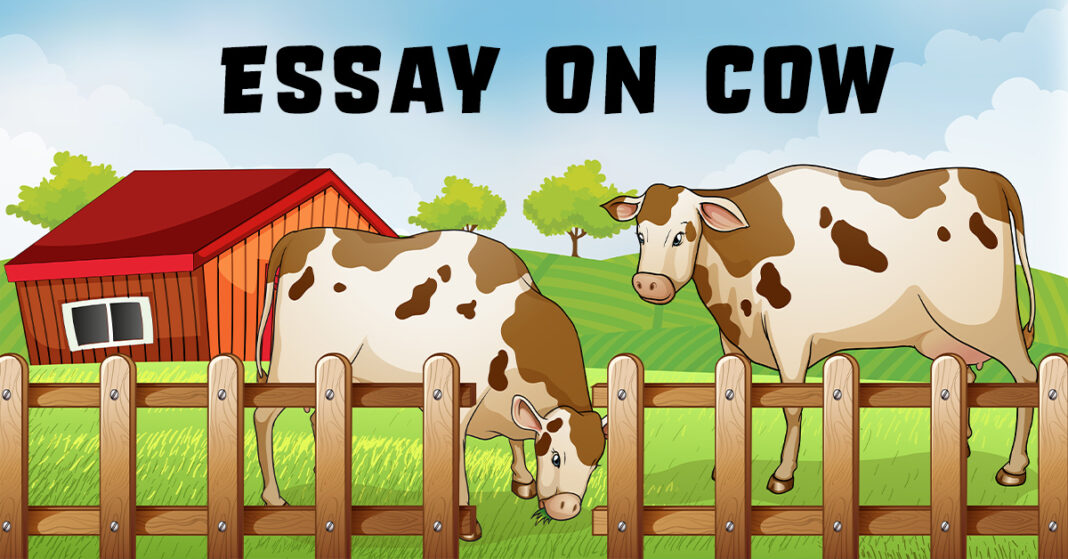The cow is a domesticated animal that has been an integral part of human society for centuries. It is a member of the Bovidae family and is raised for meat, milk, and leather. In this essay, I will discuss the importance of cows in human society and their contributions to our daily lives.
Essay on Cow
Firstly, cows are an essential source of food for human beings. Their meat is a valuable source of protein and is consumed all over the world. Cows are also used for dairy products such as milk, cheese, and butter. These products are used in a wide variety of foods and are an important part of many people’s diets.
Secondly, cows are an essential part of agriculture. They are used to plow fields and to transport goods and materials. Additionally, cow manure is an excellent source of fertilizer and is used to enrich soil and improve crop yields. Farmers also use cows to maintain grasslands and prevent soil erosion.
Thirdly, cows play an important role in religious and cultural traditions. In Hinduism, cows are considered sacred and are worshipped as a symbol of motherhood and nurturing. In some cultures, cows are used in traditional ceremonies and rituals.
Fourthly, cows provide us with leather, which is used to make a wide range of products, including shoes, belts, and bags. Leather is a durable and versatile material that is used in many industries.
Fifthly, cows are also used for medical research. Researchers study cows to gain insights into the physiology of mammals, including humans. Additionally, cows are used to produce medicines and vaccines that are used to treat a wide range of diseases.
Finally, cows have a significant impact on the environment. They contribute to greenhouse gas emissions, which can have a negative impact on the environment. However, cows also help to maintain grasslands, which can absorb carbon dioxide from the atmosphere and help to mitigate climate change.
In conclusion, cows are an essential part of human society and play a significant role in our daily lives. They provide us with food, clothing, and medicine, and are used in agriculture, religious and cultural traditions, and scientific research. While they do have an impact on the environment, their contributions to human society cannot be overstated.

















